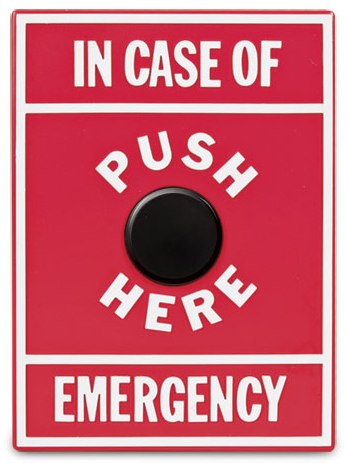 Don’t worry, I’m not about to start giving away romantic advice, far from that! In fact, the KISS principle is everything but romantic.
Don’t worry, I’m not about to start giving away romantic advice, far from that! In fact, the KISS principle is everything but romantic.
It is an acronym said to have been used for the first time by Kelly Johnson, an engineer at Lockheed in charge of designing spy planes during the Cold War. The acronym K.I.S.S. stands for “Keep It Simple Stupid“, and he meant that even an average mechanic should be able to repair the aircraft they were designing, they shouldn’t require an expert with sophisticated tools. This principle is still used nowadays by project managers and software developers, among other professionals.
I usually advise my students to apply this principle when taking the ANAC Test. That doesn’t mean that you should follow your “friends'” advice and answer just “yes”/ “no”/ “never happened to me” to every question the examiner asks. It just means that you should adjust the amount of information you give, for a few reasons:
1) You should use the structures and vocabulary you feel comfortable with. Of course, we’re all trying to achieve level 4 or higher, but everyone has an inner “examiner” that tells them how deep they can dive into their English pool. During the exam itself is not the time to test new vocabulary or structures, that should be done in class.
2) Examiners can give up to four tests a day. Can you imagine what it’s like to hear practically the same things over and over again? I’m sure your life is very interesting and you’ve had hardships and joy in your career as a pilot, but that’s much more information than the examiners need to assess your English proficiency.
3) Excessively precise information may be detrimental to your fluency. Whenever you stop to remember exactly when you had that engine failure, or what was your destination when that passenger fainted during the flight, you will have to pause for a few seconds (maybe more than a few), and this silence, or even worse – the hesitation sounds you will probably produce while trying to remember that piece of information (erm, hm, or plain “é….”, which by the way is a hesitation sound in Portuguese, not in English) – will come off as lack of fluency.
My point is: think quality, not quantity. If you have the markers for level 4 and you know the test format inside out , you will certainly pass without problem, even if you stay a short time in front of the examiner. On the other hand, a long test doesn’t necessarily mean a good result.
So here go some tips:
a) Tell the truth, nothing but the truth, but NOT THE WHOLE truth.
b) Give prompt and informative answers, using the words and grammar you feel comfortable with.
c) If you forget some vocabulary (you will forget some terms, trust me), don’t try to remember it, just explain it in other words.
d) If you don’t understand a question, negotiate with the examiner until you are able to answer it appropriately. Don’t answer any questions you haven’t understood.
e) If you realize you’ve made a mistake, correct yourself. Self-correction is a sign that the speaker is confident in their English, not the contrary.
Other than that, what can I say? Keep studying so you can achieve your level 4 – and keep it!










